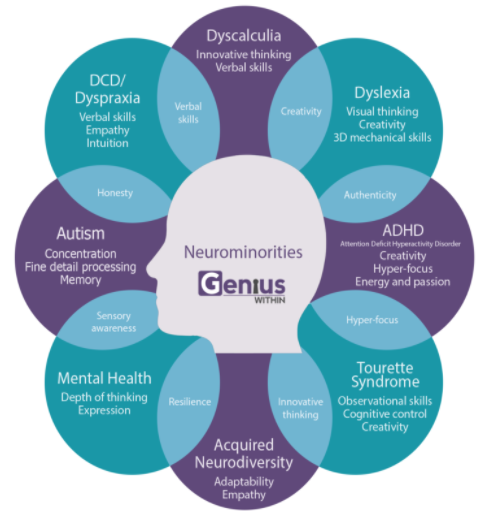What is Neurodiversity?
Neurodiversity is a term that refers to the natural differences between people and was coined in the late 1990’s by Australian sociologist Judy Singer. It can be compared to terms such as race, culture, class and gender and is useful to describe people with varying characteristics and behaviours of neurodevelopmental conditions alongside the “neurotypical” majority in a non-prejudiced way.
Learning about neurodiversity can help you move the focus from impairments towards everyone’s different abilities.
Between 30% and 40% of the population are thought to be neurodiverse. The remaining majority are neurotypical.


